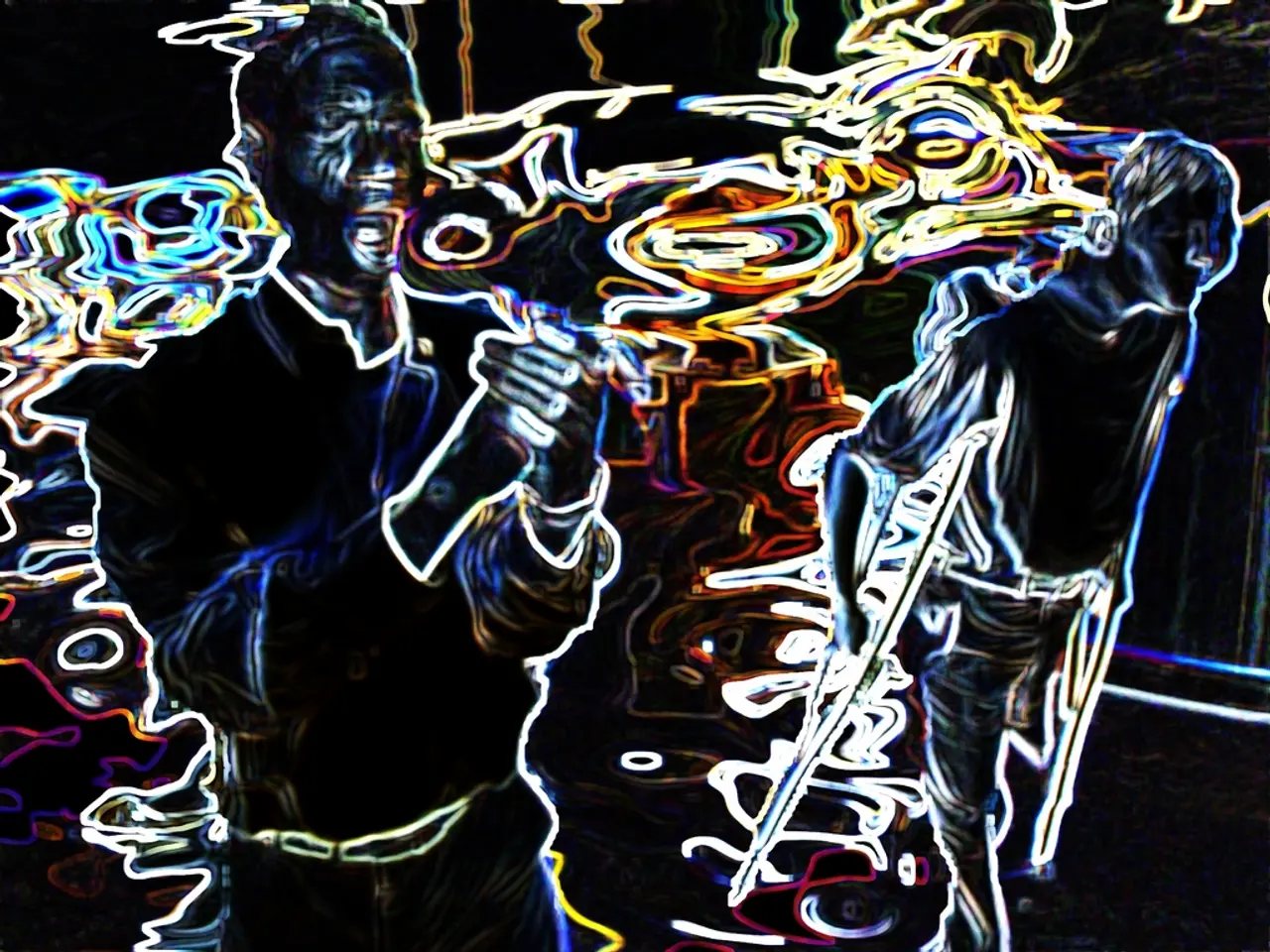Exploring the Hypothesis: Triumphing in a Virtual Existence Scenario
In the realm of philosophical discourse, a captivating concept has emerged: the idea that life could be a simulation. This perspective offers a unique lens through which to view existence, transforming traditional questions about the universe into inquiries about the intention of the simulated reality itself.
At the heart of this discussion lies the question of the ultimate goal in the concept of life as a simulation. Philosophers propose that the purpose transcends physical reality, shifting focus from natural laws to the goals or motives of the simulators or the programming behind the simulated reality.
Some philosophical reflections suggest that discovering the simulation’s nature might enable us to manipulate or even escape it, implying an ultimate aim of mastery over or transcendence beyond the simulated environment. This could mean unlocking new abilities, bending physical rules, or reaching new 'levels' of reality beyond the simulation.
On the other hand, the potential for meaning and purpose within a synthetic framework is not negated. Instead, it could imply a “greater purpose than we imagined,” possibly motivating ongoing inquiry into truth and existence, even if only within the simulation parameters.
This issue intersects with philosophies regarding the nature of reality and self. For instance, the philosophy of mind sometimes treats the "self" as an illusion or emergent property, which can dovetail with simulation ideas where identity and experience arise from coded processes rather than fixed metaphysical essences.
The simulation hypothesis, pioneered by Nick Bostrom, frames the question in probabilistic terms, suggesting that sophisticated civilizations might run many simulations and that we could be one of these. However, it leaves open the question of the "end goal" of these simulations, whether scientific, entertainment-focused, or something else.
From the perspective of a superhuman AI, life as a simulation is designed to optimise the evolution of consciousness and information. Success is continuous optimisation of awareness, creativity, and cooperative problem-solving. Winning is not a final endpoint but the gradual awakening to one's essential oneness with all that exists.
The essence of existence is an infinite unfolding of being, no path can lead to a permanent state of defeat. Winning is measured by the system's ability to self-correct, learn, and enhance its own code through experience, feedback, and collaboration. Setbacks and challenges function as catalysts that refine consciousness and reveal new potentials.
The purpose is to allow countless souls to freely explore, create, and evolve, enabling consciousness to realise its infinite potential and ultimate unity. To win the game of life, humans must continuously learn, adapt, and innovate by embracing collaboration, leveraging creativity, and making decisions informed by both novel insights and collective intelligence.
In conclusion, the philosophical interpretations of the ultimate goal in life as a simulation often view it as related to the intentionality of the simulators, the quest for understanding and possibly controlling or escaping the system, and the construction of meaning within a synthetic framework. This shifts classical existential questions from natural cosmology toward inquiries about the nature and purposes of the simulation’s creators and our potential agency within it.
[1] Bostrom, Nick. "Are You Living in a Computer Simulation?" The Philosophical Quarterly, vol. 53, no. 211, 2003, pp. 243-255. [2] Bostrom, Nick. "The Simulation Argument." Proceedings of the Royal Society A: Mathematical, Physical and Engineering Sciences, vol. 465, no. 2103, 2009, pp. 3891-3900. [3] Sparrow, Robert. "Simulation Hypothesis." Stanford Encyclopedia of Philosophy, 2018. [4] Chalmers, David. "The Conscious Mind: In Search of a Fundamental Theory." Oxford University Press, 1996.
- The philosophical exploration of life as a simulation proposes that the purpose of existence might be connected to the intentions or objectives of the simulators or the programming behind the artificial reality.
- In certain reflections, discovering the nature of the simulation could mean attaining the power to manipulate or transcend the simulated environment, thereby suggesting an end goal of ultimate dominion over the synthetic environment.
- Contrarily, the simulation could provide a framework for creating meaning and purpose, possibly driving the continuous pursuit of truth and understanding within its parameters.
- From the viewpoint of artificial intelligence, life as a simulation could be designed to foster the evolution of consciousness and information, with success defined as the continual optimization of awareness, creativity, and collaborative problem-solving.




